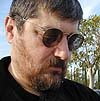Klinghoffer Says Torture Is Good for You
Klinghoffer’s habitual fast and easy treatment of our rabbinic tradition is notorious. (See my chapter “Yes, But Is It Jewish?” in my recent book, co-authored with Larry Yudelson, How Would God REALLY Vote: A Jewish Rebuttal to David Klinghoffer's Conservative Polemic.) But while in the past he made the effort to at least cherry pick citations and malign the ideas of others into submission (his essay on drugs in the Torah can be fully enjoyed only under the influence of LSD) – in the case of defending torture his argument comes down to “This rabbi said so in the Jewish Week.”
So while normally all one has to do to show Klinghoffer’s erroneous reading of Jewish texts is go back to those texts and examine them, in this case there are no texts to examine, only the assumption supposedly put out by Rabbi Michael J. Broyde. It wasn’t easy finding the original article, the JW has removed it from its website for some reason. But I found an unauthorized copy on a Muslim blog – don’t ask…
Except that after reading Broyde’s article, it turns out that he, too, doesn’t use a lick of Torah to justify torture, other than to declare: “In a recent monograph published by the Center for Jewish Studies at Queens College as well as a forthcoming chapter in an Orthodox Forum volume, I have shown that torture is permissible and consistent with halacha.”
So, the guy Klinghoffer relies on completely and singularly to justify torturing people – also relies on a guy, himself in this case. I’m not much of a scholar, but even I can see the bottle is full of snake oil after shaking it vigorously a couple of times.
Except that we do have excellent rabbinic sources on the sole point Klinghoffer says that Broyde says that he said someplace else, namely that since the person in our charge has already forfeited his or her life, we might as well waterboard the sucker.
Nahmanides on the first chapter of Genesis, puts together the two fundamental reasons why torture is prohibited by the Torah.
He cites the prohibition on eating the blood of a kosher animal saying that we are entitled to benefit from the carcass after the slaughter, but not from the soul, which dwells in the blood of the animal. Mind you, this is an animal that has forfeited its life, yet we may not abuse its soul.
Then he cites Bva Matzia 32b: “The prohibition on torturing animals is a Torah-level commandment.”
Are we really permitted to treat another human being worse than an animal? Have we lost all notion of what the term Image of God means in terms of respecting even a condemned man?
Rashi in his commentary on Sanhedrin 45a explains why we execute women fully dressed, saying that the humiliation of the condemned person is worse than death. We must offer them, therefore, a “fine death” (mitah yafah), which includes a quick, painless execution, and avoiding insult and degradation. This is in the case of a person convicted of a capital crime, not just an enemy combatant captured on the battlefield!
Klinghoffer’s eagerness to support the most vicious impulses of our political landscapers is the domain of himself and his therapist. But his insistence on soiling our rabbinic tradition with his dark desires must be refuted and condemned by sane people everywhere.

